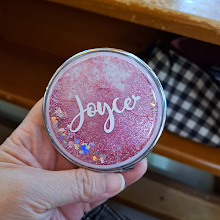July is UV Awareness Month
Did you know that July is UV Awareness Month? This month is dedicated to raising awareness about the dangers of ultraviolet (UV) light being the leading cause of most skin cancers. The
American Academy of Dermatology Association (AAD) recommends the following #PracticeSafeSun steps to protect your skin:
1. Seek shade whenever possible.
2. Wear sun-protective clothing.
3. Apply a broad-spectrum, water-resistant sunscreen with an SPF of 30 or higher.
Key Considerations for Sunscreen Selection
In recent years, sunscreen usage has surged, becoming one of the most popular and frequently used skincare items. Sunscreen provides significant benefits, including preventing sunburn, slowing the aging process, and reducing the risk of skin cancer.
However, these benefits can only be realized if sunscreen is used correctly and appropriately. Therefore, it is essential for consumers to understand how to choose the right sunscreen and how to apply it properly.
When selecting sunscreen, several important factors should be considered to ensure maximum effectiveness:
#1: Formulation and Ingredients
Sunscreens are available in various forms, including creams, lotions, and sprays, each suited to different skin types and preferences. The formulation you choose can significantly impact the product's effectiveness.
Cream-based sunscreens containing moisturizing ingredients like ceramides, glycerin, and hyaluronic acid are ideal for dry skin type. Water-based gels or lotions with ingredients like green tea, tea tree oil, and niacinamide are beneficial for oily skin type.
Read more:
#2: Broad-Spectrum Protection
Broad-spectrum sunscreens protect against both UVA and UVB rays, which are harmful to the skin. UVA rays can cause premature aging, while UVB rays are responsible for sunburn. Using a broad-spectrum sunscreen ensures comprehensive protection from both types of UV radiation.
#3: Sun Protection Factor (SPF)
The SPF rating indicates how long a sunscreen can protect your skin from sunburn. For example, SPF 30 means you can be in the sun 30 times longer without burning than you could without protection. Dermatologists recommend using a sunscreen with at least SPF 30 for daily protection. For extended sun exposure, a higher SPF may be necessary.
#4: Water Resistance
Sunscreen efficacy diminishes when exposed to water. However, water-resistant formulations are designed to maintain their protective effects for a specified duration, usually between 40 and 80 minutes. It is important to reapply water-resistant sunscreen after swimming or sweating to maintain protection.
From left to right:
Dr. Jart+ Every Sun Day Waterproof Sun Milk,
Missha All-Around Safe Block Waterproof Sun Milk,
Dr.Ceuracle Cica Regen Waterproof Sun
Proper Application of Sunscreen
The effectiveness of sunscreen also depends on how it is applied:
- Timing: Apply sunscreen 15-30 minutes before sun exposure to allow it to fully absorb and form a protective barrier.
- Quantity: Use enough sunscreen to cover all exposed skin, ensuring even coverage, including often-missed areas like the ears, neck, and tops of feet.
- Frequency: Reapply sunscreen every 2 to 3 hours, especially after swimming, sweating, or towel drying.
- Daily Use: Incorporate sunscreen into your daily skincare routine, even on cloudy days or during winter, as UV rays can penetrate clouds and reflect off glass.
Storage and Expiration
To maintain the stability and effectiveness of sunscreen, store it away from direct sunlight and high temperatures. Always check the expiration date and avoid using products past their expiry, as they may become less effective.
My Latest Sunscreen Purchases
From left to right: Isntree Hyaluronic Acid Watery Sun Gel, Dr. Jart+ Every Sun Day Waterproof Sun Milk, Missha All-Around Safe Block Waterproof Sun Milk, Kaine Green Fit Pro Sun, Dr.G R.E.D. Blemish Soothing Up Sun, and Dr.Ceuracle Cica Regen Waterproof Sun.
All are Korean sunscreens, SPF 50+ PA++++, lightweight on the skin, no greasy feeling, no white cast. If I have to choose a favorite among these six latest sunscreens that I purchased, it will be the Dr.G sunscreen.
My Recent Sunscreen Empties
From left to right: Thank You Farmer Sun Project Skin Relief Sun Cream, Herbloom Calming Days Vegan Sunscreen, SKIN1004 Madagascar Centella Hyalu-Cica Water Fit Sun Serum, Round Lab Birch Moisturizing Sunscreen, Hada Labo Perfect Series UV Perfect Gel, and Beauty of Joseon Relief Sun: Rice + Probiotics.
If I have to choose a favorite among these six used sunscreens, it will be the Round Lab sunscreen.
Overall, do your own research to select the right sunscreen for your skin and use it correctly so that you can enjoy the sun safely while keeping your skin healthy and protected.


































